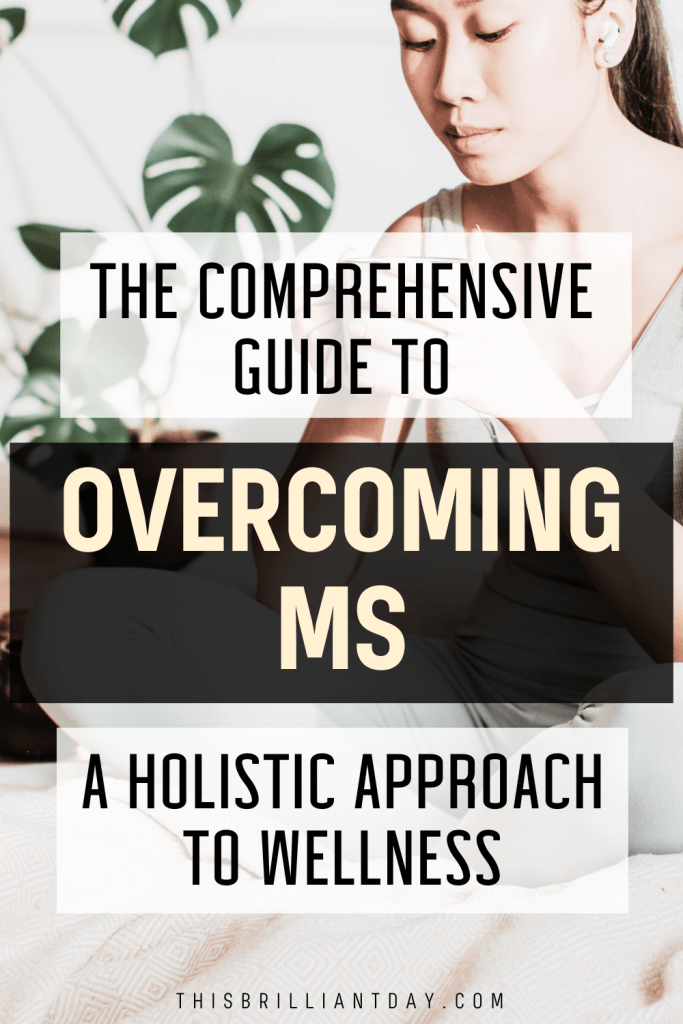AD | This is a sponsored guest post.
Multiple sclerosis (MS) is a complex autoimmune condition that affects the central nervous system, leading to a wide range of symptoms such as fatigue, weakness, numbness, and difficulty with coordination and balance. While there is no cure for MS, the Overcoming MS Programme offers a comprehensive approach to managing the condition and improving quality of life through various lifestyle interventions. In this guide, we will explore the six pillars of the Overcoming MS Programme: Diet, Sunlight & Vitamin D, Physical Activity and Exercise, Stress Management and Meditation, Medication, and Family Health.
Diet
The foundation of the Overcoming MS Programme is a plant-based, low-saturated fat diet. Research suggests that such a diet can reduce inflammation and support overall health, potentially slowing the progression of MS and alleviating symptoms. Key components of the diet include fruits, vegetables, whole grains, legumes, and healthy fats such as those found in nuts and seeds. Processed foods, dairy, and red meat are minimised or avoided altogether. Additionally, omega-3 fatty acids, found in sources like flaxseeds and walnuts, are encouraged for their anti-inflammatory properties.
Sunlight and Vitamin D
Sunlight exposure plays a crucial role in vitamin D synthesis, which is essential for immune function and bone health. Individuals with MS often have lower levels of vitamin D, and supplementation is commonly recommended as part of the Overcoming MS Programme. However, caution should be exercised to balance the benefits of sunlight exposure with the risk of skin damage and skin cancer. It is advisable to consult with a healthcare professional to determine the appropriate level of sun exposure and vitamin D supplementation.

Physical Activity and Exercise
Regular physical activity and exercise have been shown to improve cardiovascular health, muscle strength, flexibility, and mood in individuals with MS. The Overcoming MS Programme emphasises a balanced exercise routine that includes aerobic exercise, strength training, and flexibility exercises. Activities such as walking, swimming, yoga, and tai chi are particularly beneficial for improving mobility and reducing fatigue. It is essential to listen to your body and pace yourself, gradually increasing the intensity and duration of exercise as tolerated.
Stress Management and Meditation
Stress can exacerbate MS symptoms and contribute to disease progression. Therefore, stress management techniques are integral to the Overcoming MS Programme. Mindfulness meditation, deep breathing exercises, and relaxation techniques can help reduce stress and promote emotional well-being. By cultivating a regular meditation practise, individuals with MS can develop greater resilience and cope more effectively with the challenges of living with a chronic condition.
Medication
While lifestyle interventions are the cornerstone of the Overcoming MS Programme, medication may also be prescribed to manage symptoms and slow disease progression. Disease-modifying therapies, such as interferon beta and glatiramer acetate, are commonly used to reduce the frequency and severity of relapses in relapsing-remitting MS. Symptom management medications, such as corticosteroids for acute relapses or muscle relaxants for spasticity, may also be prescribed as needed.
It is essential for individuals with MS to work closely with their healthcare team to develop a personalised treatment plan that addresses their specific needs and goals. However, it’s important not to neglect other aspects of health, for example, dental health. Whether you are searching for dental implants Basingstoke or something else, maintaining regular dental check-ups and overall health screenings is vital for holistic well-being. Your oral health, just like your physical and mental health, plays a significant role in your overall quality of life. Therefore, prioritise comprehensive care and communicate openly with your healthcare providers about any concerns or needs you may have.

Family Health
The support and involvement of family members are crucial in the journey of overcoming MS. Family members can provide practical assistance, emotional support, and encouragement to individuals with MS. Additionally, family health and well-being should be prioritised to create a positive and nurturing environment for everyone. Open communication, education about MS, and participation in healthy lifestyle behaviours together can strengthen family bonds and promote overall wellness.
Overcoming MS: A Holistic Approach
In conclusion, the Overcoming MS Programme offers a holistic approach to managing multiple sclerosis by addressing various aspects of lifestyle and wellness. By incorporating dietary changes, optimising vitamin D levels, engaging in regular physical activity, practising stress management techniques, considering medication when necessary, and fostering family support, individuals with MS can empower themselves to live well despite the challenges of the condition. It is essential to work closely with healthcare professionals and loved ones to tailor a personalised approach that meets individual needs and preferences.


